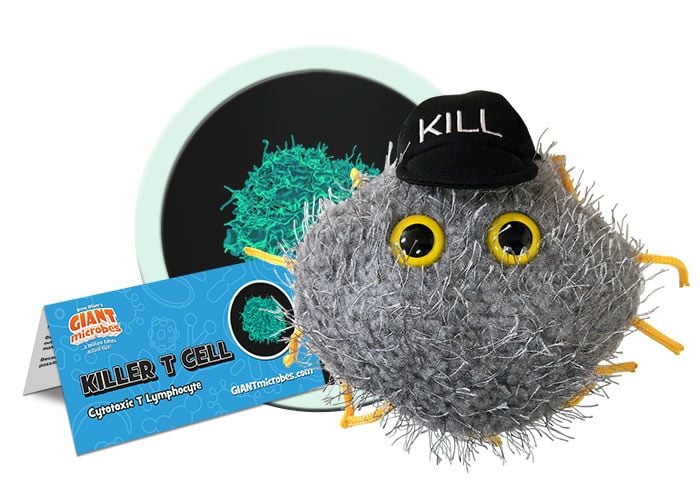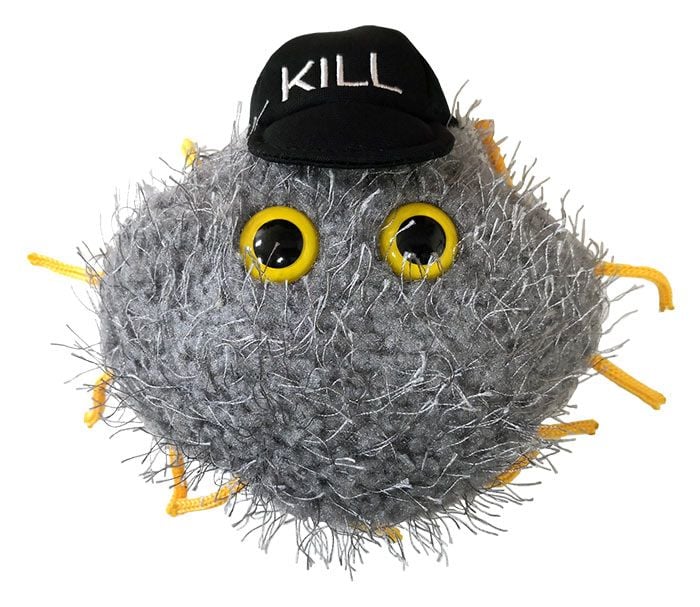Killer T Cell
Product Details
Additional Information
| Sizes | Giantmicrobes are based on actual microbes, cells, organisms and other critters, only 1,000,000 times actual size! Gigantic (GG) 16-24" XL (XL) 10-15" Original (PD) 5-8" Keychain (KC) 2-4" with clip |
|---|---|
| Materials | Plush from all new materials. Stuffed with polyester fiber fill. Surface washable: sponge with water & soap, air dry. |
| Packaging | Each plush microbe includes a printed card with fun, educational and fascinating facts about the actual microbe or cell. |
| Safety | Every product meets or exceeds U.S. and European standards for safety. For ages 3 and up. |
All about Killer T Cell
FACTS: Killer T-cells are a type of white blood cell and an important part of your immune system. Also called cytotoxic T lymphocytes, they kill cells infected with a virus, cancer cells and other microbes that do not belong in your body. Killer T-cells are your body’s equivalent of a special operations unit as they only look for and destroy one specific type of invader. They do this by relying on antigens from infected cells.
Like most blood cells, killer T-cells are produced in the bone marrow. However, they travel through the bloodstream to the thymus, a small organ between the lungs, where they mature into powerful fighters. Thus, the name T-cell.
There are two main types of T-cells: killer and helper. Helper T-cells coordinate the immune system and signal to killer T-cells and other white blood cells when a virus is present. Despite their importance, it is remarkable that these immune cells were only discovered about 50 years ago.
Today, T-cells are gaining a lot of attention in immunotherapy to treat cancer. One type of immunotherapy uses a patient’s own killer T-cells. They are separated from the blood, genetically modified, and then given back to the patient to destroy cancerous cells.





